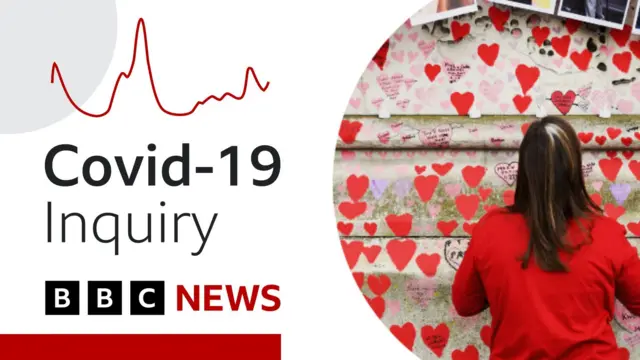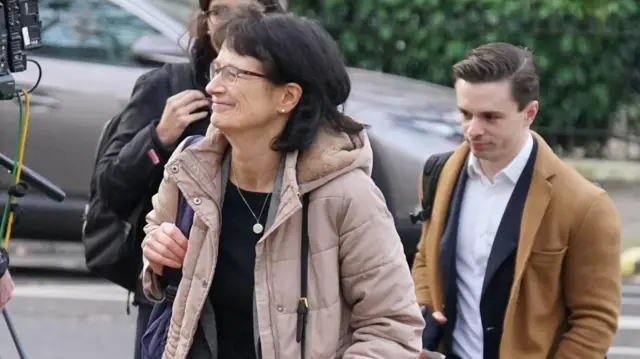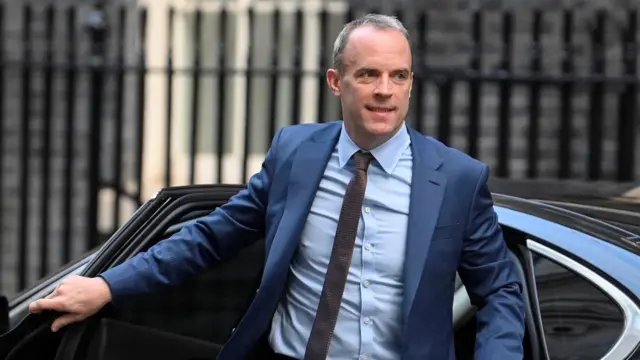Evidence on face coverings is still uncertain, Harries sayspublished at 11:06 GMT 29 November 2023
 Jim Reed
Jim Reed
Health reporter
As we've been reporting, the inquiry has just been talking about one of the most divisive policies of the pandemic: face masks.
Harries says there was little evidence on the effectiveness of homemade face coverings and she was concerned that recommending them could encourage people to socialise more and lead to a "false sense of security".
"If people just thought they could get a bit of t-shirt, put it around their face, and that would solve all our problems and we could go back to normal [then] that was not going to be a good public health intervention," she said.
But, more than three years later, she says the evidence on face coverings is still "uncertain", partly because it's so difficult to design a study to accurately test their effectiveness in real world conditions.




